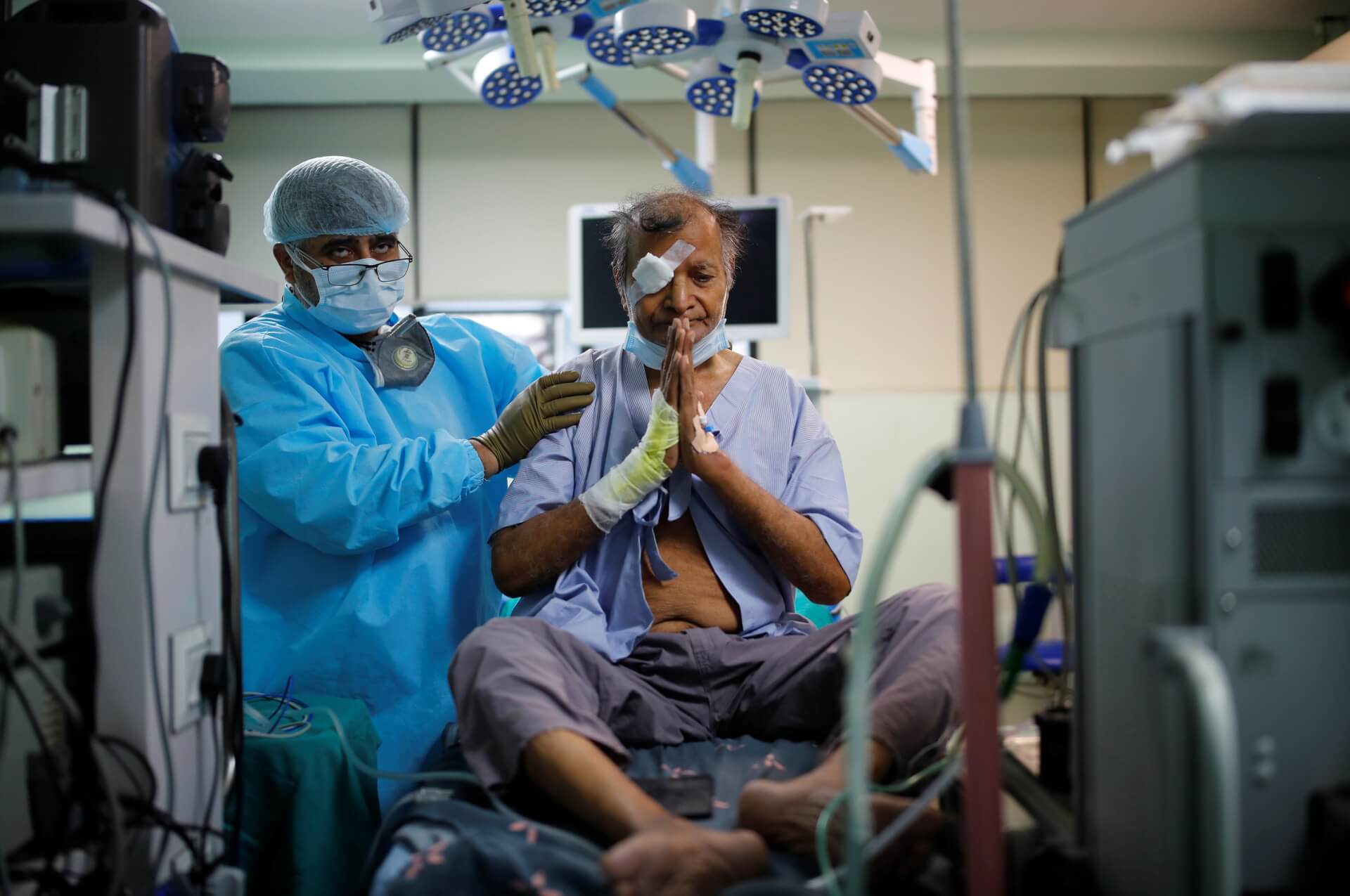India has reported more than 4,200 deaths due to Black Fungus or Mucormycosis so far, the Indian Health Ministry stated on Wednesday. Moreover, in the past two months, the country has recorded over 45,000 cases of the deadly fungus, from which nearly half are still receiving treatment. The infection has been seen mainly in recovering or recovered patients of COVID-19.
Indian Health Minister Mansukh Mandaviya said that out of the total Black Fungus cases, 84.4% had a history of COVID-19. He added that Maharashtra and Gujarat are the two worst-affected states in India, cumulatively recording 1,785 cases of the infection. Following an advisory by the Health Ministry earlier, several states in India declared the Black Fungus an epidemic.
However, speaking to the BBC, Dr Raghuraj Hegde, an eye surgeon, said there has been “massive undercounting of both cases and deaths.” He said this was because the deaths can occur weeks or even months after being infected by Black Fungus, something the Indian healthcare system does not capture. In addition, diagnosis in rural areas or hospitals with lesser facilities has also contributed to this undercount.
While anti-fungal injections, such as amphotericin B liposomal, are the only solution in modern medicine, several Indians have turned to Ayurveda’s Leech therapy, which uses medicinal leeches for the blood purification process. Ayurveda experts also believe that the treatment helps in releasing enzymes that enhance immunity. However, medical experts have raised concerns about the lack of medical literature and evidence for this form of therapy for COVID-19 patients infected with Black Fungus.
The infection was relatively rare earlier. However, since the onset of the second wave of COVID-19, India has seen a surge in the number of cases of Black Fungus among recovered and recovering coronavirus patients. The infection primarily affects the patient’s nose, eyes, and sometimes even the brain. The disease also has a concerningly high mortality rate of around 50% if it is not diagnosed early. Doctors have said on many occasions that the only way of treating the disease and stopping it from spreading to the brain is to remove the patients’ eyes and jaws.
Medical experts believe that the rising number of cases is likely due to the use of steroids to treat COVID-19 patients. The experts say that steroids, while effectively reducing the inflammation in the lungs, reduce immunity and raise patients’ blood sugar, specifically in diabetic patients. Therefore, like immunocompromised individuals, such as cancer patients or individuals with HIV/AIDS, have accounted for several of the Black Fungus cases. Concerningly, the use of steroids has been rampant in India, with some specialists criticising the overuse of the drugs. Another reason for the rise in infections is the unhygienic administration of oxygen to COVID-19 patients. Medical oxygen, as compared to industrial oxygen, requires repeated “compression, filtration, and purification” to ensure that it is highly purified. The cylinders used to store medical oxygen should also be highly sterilised and disinfected. In addition, the oxygen must only be passed through sterile water. Failure to adhere to these guidelines could lead to people getting infected.
As India prepares for the third wave of the pandemic, it risks facing a dual-threat due to the Black Fungus. Indian healthcare professionals must be warned of the consequences of the overuse of steroids and the importance of maintaining hygiene while administering oxygen to already vulnerable and immunosuppressed patients to avoid a second wave-like situation.

